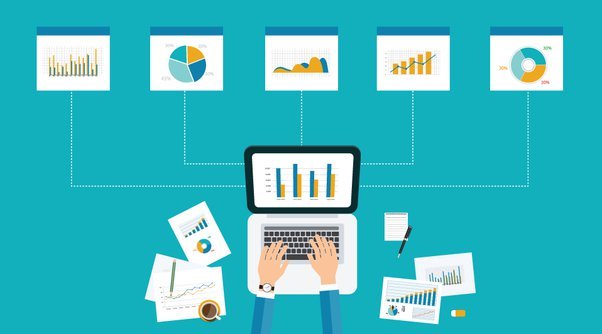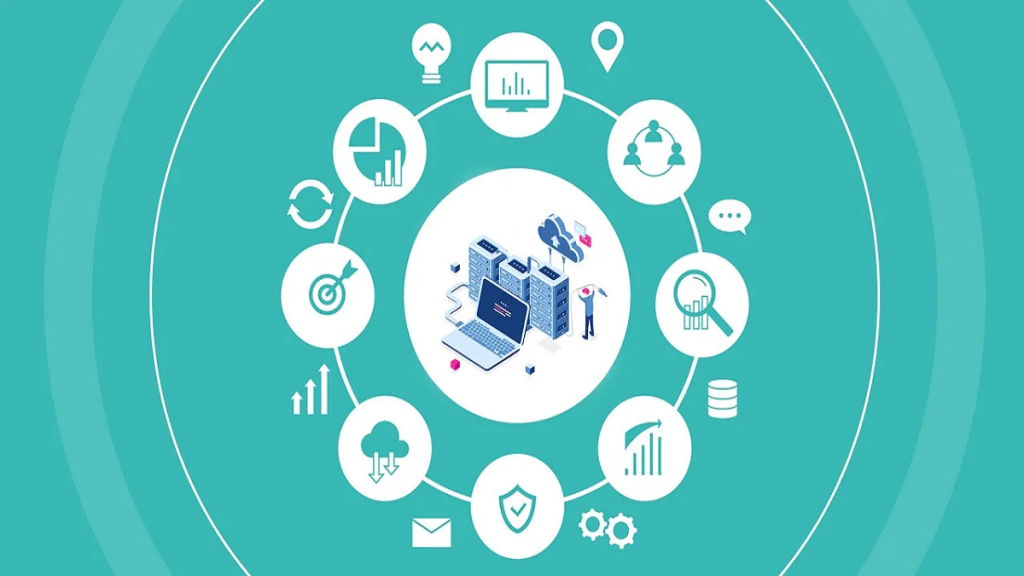Benefits of Data Analytics: Today’s global marketplaces revolve around data; therefore, a company’s capacity to interpret its data is essential to its success. If it doesn’t make use of this data, it might lose ground to competitors. Raw data alone is not very valuable. There come the benefits of masters in data analytics.
To get the most out of their data, businesses must apply data analytics, a methodical discipline that focuses on looking through data to uncover patterns, trends, and insights. What are data analytics’ main advantages? Business executives may make prompt, well-informed choices and get deeper insights about their company and clientele with the use of data analytics.
How To Masters In Data Analytics Helps Business

1. Better Decision-Making
Even though the majority of individuals would want to think of themselves as objective decision-makers, subjectivity is always a part of the process. Leaders who must make snap decisions often draw on their personal experiences, which implies that a significant business choice may be motivated by a gut instinct or intuition. Although competent leaders are usually adept at this, prejudice and errors may occur in the process.
One of the benefits of data analytics is that it enables executives to use data to support more informed business choices. Data is included early in talks in an atmosphere where it is a major factor in decision-making. To make sure a choice has a greater effect, stakeholders inquire about the facts around a certain subject.
2. Having New Customers
A company’s ability to expand and succeed might be harmed by losing the attention of potential clients. Customer engagement, conversions, and acquisitions may all be boosted by data analytics. To find out which messages connect and encourage conversions, a company may, for instance, analyze performance data regarding the effectiveness of its content or monitor how consumers react to email and social media campaigns.
These insights may then be used by the company to design high-impact marketing campaigns and tactics that enhance customer experiences, all of which can lead to a rise in new customer acquisition. It is one of the wonderful benefits of data analytics.
3. Boosting Brand Image
The thing that sets one company apart from another is its brand. Brands are often connected to some of the most well-known businesses in existence; consider Nike or Coca-Cola. However, creating a brand is essential for every organization, and maintaining it is even more crucial.
One importance of data analytics is that it may reveal perceptions about a company’s brand. For instance, a company may use social media platforms to search for appealing aspects of its brand image. They may pick what to preserve, eliminate, or update after learning what the public or their consumers think of their brand with the use of this data.
4. Offering Personalized Experiences
Following the addition of goods to their virtual shopping carts, customers can get suggestions for other things based on their selections and opinions. This kind of tailored experience lets a client know that their preferences are taken into consideration. Additionally, a customized experience demonstrates to the client that the company has made an effort to get to know them.
It is becoming more and more crucial to use data analytics to curate individualized experiences by inferring a customer’s preferences from customer, sales, and marketing data. Offering personalization may increase revenue by 10% to 15%, and 71% of customers want personalized services and interactions, according to the Personalization Report. If a company doesn’t use its data to create these kinds of experiences, it might miss out on chances to boost output and enhance client results.
5. Increasing Loyalty and Retention
Retaining clients is a firm’s main goal once it has gained its business. Since it costs more to recruit a new client than it does to maintain an existing one, customer retention and loyalty programs maximize upsell chances and boost profitability.
Companies may use the benefits of data analytics to uncover patterns of consumption and learn more about the behavior of their customers. By using these data, a company may get a deeper understanding of its clientele and lower customer churn—the percentage of new customers who do not convert to loyal ones.
6. Better Financial Forecasting
In an expanding market or during a recession, companies must be aware of their financial position. Although it is not feasible to foresee every situation that might affect a company’s financial situation, data analytics is essential to fostering financial resilience.
Businesses can forecast their short- and long-term business positions, prepare for worst-case market scenarios, and take action to maximize financial returns by analyzing data on sales trends, costs and expenses, consumer behavior, supply chains, consumer demand, and market sentiment.
7. Enhancement Of Marketing Programs
Businesses may increase the return on their marketing spending with the use of data analytics. Data analytics may help decision-makers identify the most valuable parts of a marketing strategy while they are assessing or planning a campaign.
For instance, information gathered on the variables influencing customer behavior and purchasing trends may indicate the most effective marketing channels. Additionally, this data could provide crucial business indicators that aid marketing companies in making wise selections about the next marketing campaigns. Marketing executives may use this information to concentrate their planning on the campaigns that have the best return on investment.
8. Streamlining Operations
Enhancing an organization’s operations may lead to lower expenses, more productivity, and a healthier bottom line. Understanding the importance of data analytics and using operational analytics is one approach to accomplishing these goals.
By pinpointing issues and streamlining procedures, data analytics improves corporate operations. Predictive analytics-derived key data insights may assist in anticipating possible issues with machinery and equipment, lowering repair costs, and lowering the possibility of unplanned downtime situations. It is one of the best benefits of data analytics.
9. Mitigation of Risks
The three main stages in a continuous cycle that make up developing a risk management plan are risk identification, risk assessment, and risk monitoring. Finding any possible situation or incident that might have a detrimental effect on the company’s finances or reputation is the main goal of the first stage. The possibility of such occurrences happening and whether they would have an immediate effect on the business’s operations are evaluated in the next phase.
The monitoring stage establishes the appropriateness of reactions to risk occurrences. Data analytics is essential for streamlining and enhancing the process at every level and assisting executives in making the most informed strategic risk choices.
Embrace Data Analysis Now!
The discipline of data analytics is gaining fresh talent daily, primarily due to its growing significance in business. Companies are aware that employing professionals with the appropriate skills and education may help them get the benefits of data analytics. Employers will find it more appealing to hire someone who has a proven data analytics skill set and has shown understanding, regardless of how wide the tasks of a given function may be.
The conventional methods of getting ready include doing your research and applying to colleges. A data analytics bootcamp may assist someone looking for alternative possibilities in starting their profession in as short as a few months. Those with an interest in data analytics should carefully consider their alternatives to acquire the knowledge and skills necessary to advance in their jobs within a timeline that aligns with their career goals.
FAQ
Q: What advantages may data analytics offer?
A: Businesses may use data analytics to reduce risks, increase productivity, personalize consumer experiences, and make well-informed choices. It offers insightful information that may result in more profits, lower expenses, and a competitive advantage.
Q: To whom may data analytics be beneficial?
A: Data analytics is used by companies of all sizes, including those in marketing, finance, healthcare, and retail. Governmental agencies, academic institutions, and even non-profit organizations depend heavily on data analysts.
Q: Is the ability to analyze data useful?
A: Proficiency in data analytics is highly desirable in a variety of sectors. Businesses increasingly depend on experts who can glean valuable insights from ever-increasing amounts of data and convert them into workable plans.







